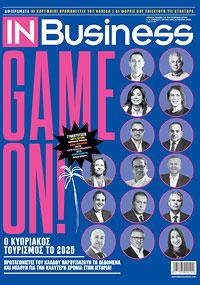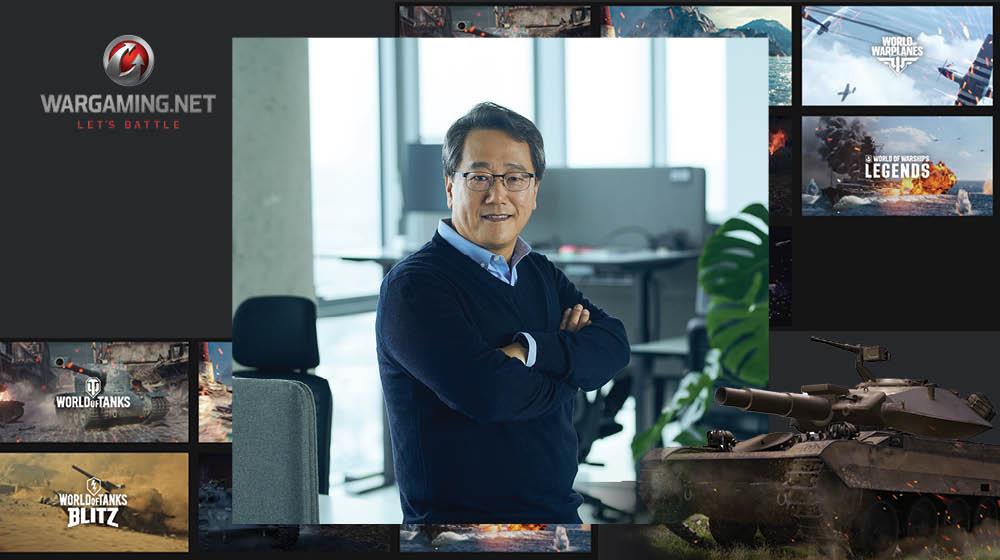“In a world where over 3.2 billion people play games worldwide, everyone is a gamer,” suggests Christopher Chung, World of Tanks Franchise Director, Wargaming.
Speaking to GOLD magazine as part of a cover story featuring 18 of the top gaming developers based in Cyprus, Chung talks about the current state of the local and international gaming sector. He also shares his thoughts on why Cyprus stands out as an appealing destination for technology investments.
How did the focus on console games in the turn-based and real-time strategy genres come about?
Since Wargaming is focused on creating free-to-play shooter games rather than strategy games, I will let others answer this issue. I would rather discuss how the free-to-play business model became dominant in games. Prior to the advent of free-to-play model, games were mostly acquired through purchasing a physical copy for around US$50. The problem with this was that you are paying for a game without knowing whether you will like the experience. The free-to-play or freemium business model came about initially in Asia to lower the barrier of entry for new players so that they could try a game for free before making a commitment. In games such as World of Tanks or World of Warships, anyone can play without having to pay anything. You can only make in-game purchases if you like the experience and want to continue to play. World of Tanks is one of two games along with League of Legends that popularised this model in the Western world. Now, the most popular games in the world are either free-to-play or incorporate some aspects of this business model.
Walk us through your flagship title and the reasons behind its success.
I am so proud that World of Tanks will be celebrating its 14th anniversary in August 2024. We are on the small list of games that continue to be enjoyed by players around the world long after their initial release. The credit for this success belongs to the hundreds of committed people who continue to develop and manage the game every day. It is incredible that the team has never missed a significant patch, despite the issues they faced because of the war in 2022. They strive to provide the best experience possible for our players, not only by releasing new content on a regular basis but also by updating the technology to improve the gaming experience. We are committed to continuing to invest in R&D for all our games in the World of Tanks franchise.
HBO’s success with The Last of Us and collaborations between acclaimed filmmakers and game creators like Jordan Peele and Hideo Kojima suggest that gaming is on the way to becoming the dominant entertainment medium. What prospects do these developments open for game developers?
When I started in the industry, more than a couple of decades ago, the term ‘gamers’ had a few sets of identifiable traits. However, in a world where over 3.2 billion people play games worldwide, everyone is a gamer! This year, the video game industry’s revenue is expected to exceed US$ 200 billion – much higher than the combined revenue of the music and film industries. While the film industry has tried to leverage gaming IP with mixed results in the past, it is great to see more recent transmedia efforts such as HBO’s The Last of US and Netflix’s Arcane raising the standards for video game adaptations. I believe this type of collaboration and adaptation between gaming and other media will continue to grow. Game developers that are interested in transmedia collaborations should – from the beginning of game development – focus on creating a world and tools that allows this type of collaborations.
Given the growing popularity of e-sports and its evolution into a major sporting event, including an annual e-sports World Cup to be held in Saudi Arabia, what opportunities does this remarkable surge present for game developers?
It is great to see the continued growth of e-sports’ popularity around the world. In November, I was fortunate enough to attend the World of Tanks Championship International in Shanghai hosted by our partner 360. It is certainly thrilling to see world-class players duke it out on the stage with thousands of fans cheering on. However, as an industry, we also need to be cautious because (1) not all competitive games are created for e-sports. While several games work well as e-sports titles – such as League of Legends, DOTA 2 and Counter Strike – there are tons of more successful competitive games that are just not fun to watch. And (2) professional sports and professional e-sports are fundamentally different: Professional sports have independent governing bodies such as FIFA and the NBA that determine a wide range of issues, including changing the rules of the game. However, will developers allow this kind of independent governance, when they themselves own the game? Developers that are interested in creating an e-sports game should focus on creating a game that is first and foremost fun. They should also make sure that the rules of the game are simple to understand, while ensuring that broadcasts are compelling to watch. Finally, they shouldn’t market the game as an e-sports title until they have built a big enough player base.
Your studio, among others developing console and PC games, has chosen to establish itself in Cyprus. What specific attributes make the island an appealing destination for you?
Cyprus stands out as an appealing destination for technology investments, thanks to its strategic location, robust economy and supportive government policies. The nation’s tax regime, offering incentives for Intellectual Property and Research & Development, establishes Cyprus as an economically viable location for tech development and operations. These tax benefits are especially attractive for firms seeking to enhance their tax efficiency and expand in Europe and the wider region.
The recent decision by the House of Representatives to reduce the naturalisation period for C-level executives to four years reflects efforts to establish Cyprus as an IT and games hub. What other changes, policy or otherwise, do you believe would further support this goal?
Modernising Cyprus’ legislative framework to streamline the naturalisation of highly trained professionals is a crucial step in enhancing the country’s competitiveness as a tech hub. This reform is particularly vital, given that Cyprus’ tech sector is relatively new and the country’s small size limits the availability of local tech experts. Having the EU’s lowest proportion of STEM graduates, Cyprus faces a significant talent gap, requiring the attraction and retention of skilled professionals from overseas. Therefore, now that an attractive framework is in place to bring world-class talent to the island, we need to focus on upskilling and reskilling the local workforce, to create a strong local talent pool. This approach will help bridge the current gap in the tech-ready workforce and foster a more dynamic, future-oriented tech sector in Cyprus.
(This interview first appeared in the January edition of GOLD magazine. Click here to view it.)









